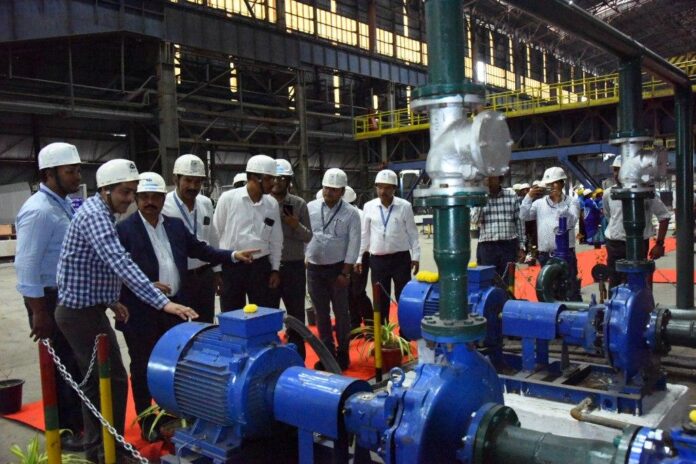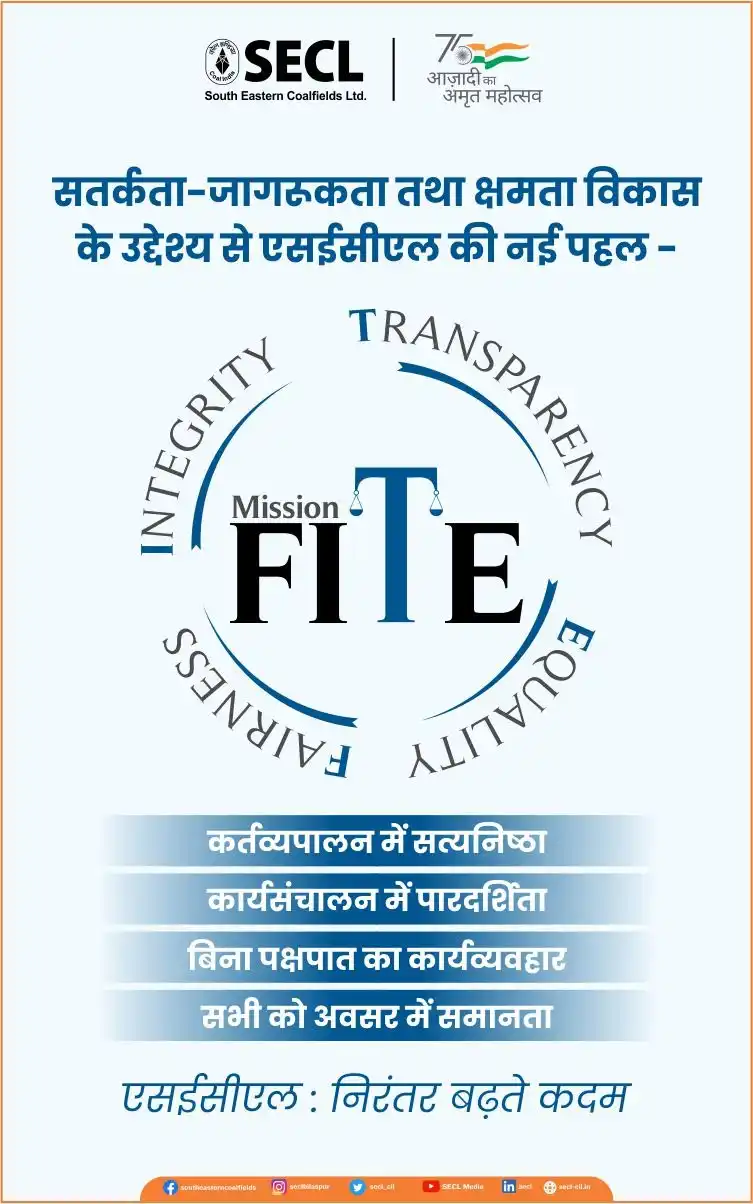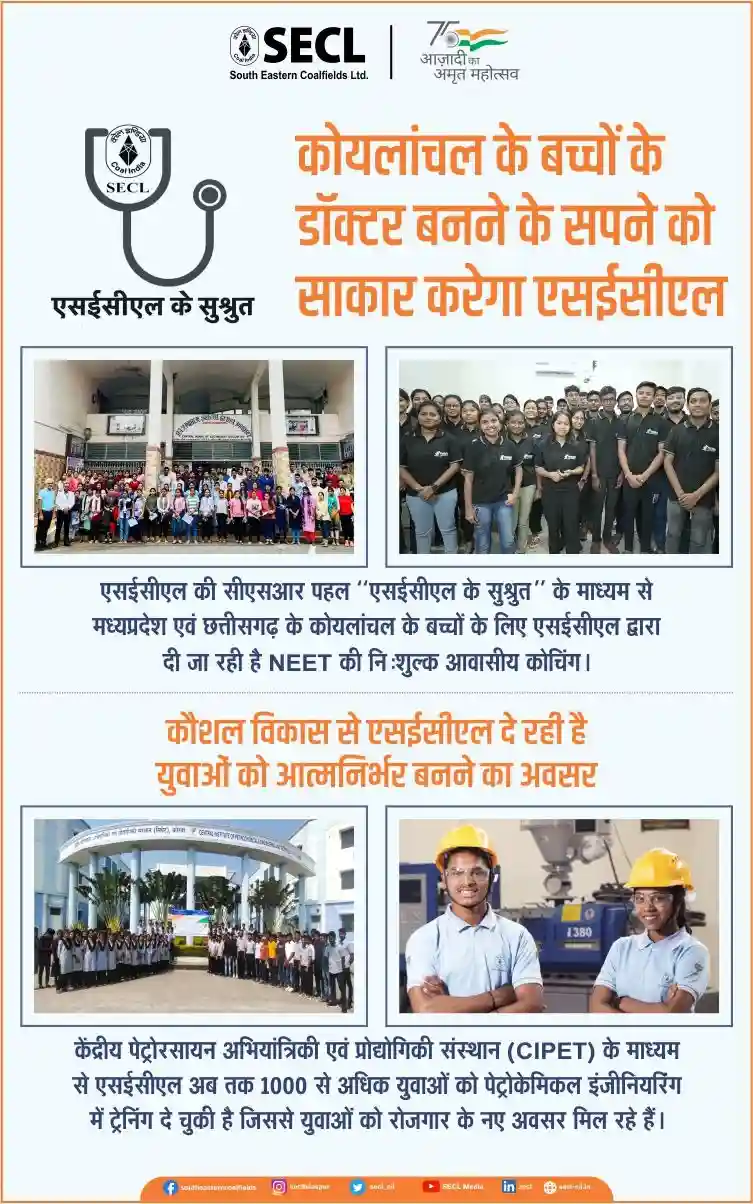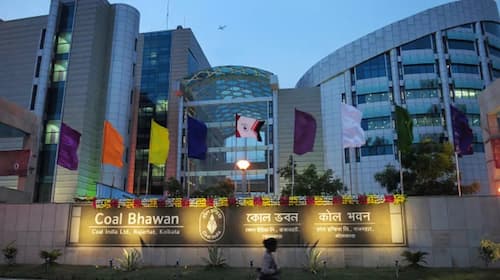A newly commissioned Automatic Forced Cooling System at the Connecting Table of the New Plate Mill was inaugurated byS R Suryawanshi, ED (Works) RSP on 21st February, 2024 in the presence of Kartikeya Behera, CGM (NPM & SPP), RSP, K K Keshari, CGM, RDCIS, Rourkela Centre, P Pathak, CGM, RDCIS Ranchi, R S Sharama, GM(O), Nilamani Mohapatra GM(O), S Sudhakar, GM(M), Dr S Rath, GM(FR&T), RDCIS, and various officers and employees of the RSP and RDCIS.
The New Plate Mill, operating at over 90% of its rated capacity since its commissioning in 2015, identified a critical need to optimize its finishing line to further augment production. Plates with temperatures exceeding 80°C posed a challenge for processing in the online UST, potentially damaging the UST probe. Consequently, the finishing line had to be halted to achieve the target temperature of less than 80°C for online UST, leading to occasional mill stoppages due to limited space on the cooling bed. In the fiscal year 2022-23, hot plates resulted in a total mill stoppage of 27 hours, significantly reducing overall production from the New Plate Mill.
In response to this challenge, the Automatic Forced Cooling System was conceptualized and implemented in association with RDCIS project. Positioned strategically at the connecting roller table between the cooling bed and inspection bed, this cutting-edge system aims to reduce plate temperatures before entering the online Ultrasonic Testing (UST), thereby enhancing the productivity of the UST and the finishing line. Moreover, it promises to deliver superior surface conditions for finished plates.
The forced cooling system is a testament to innovation and engineering excellence, boasting top and bottom cooling headers with meticulously arranged nozzles ensuring comprehensive plate coverage. Robust supporting structures have been fabricated and installed alongside a dedicated water tank to ensure a seamless and uninterrupted water supply. The system is equipped with a sophisticated control mechanism and controllers, ensuring precise regulation of the cooling water spray based on plate entry and exit.
This state-of-the-art system has been implemented with a total project cost amounting to Rs. 68.9 lakhs. However, the anticipated benefits far outweigh the costs, with an estimated yearly cost savings of Rs. 102 lakhs because of the substantial reduction in delays caused by holding plates in the cooling bed.



















